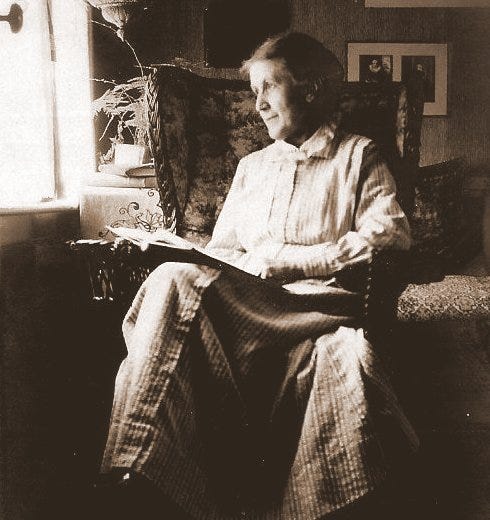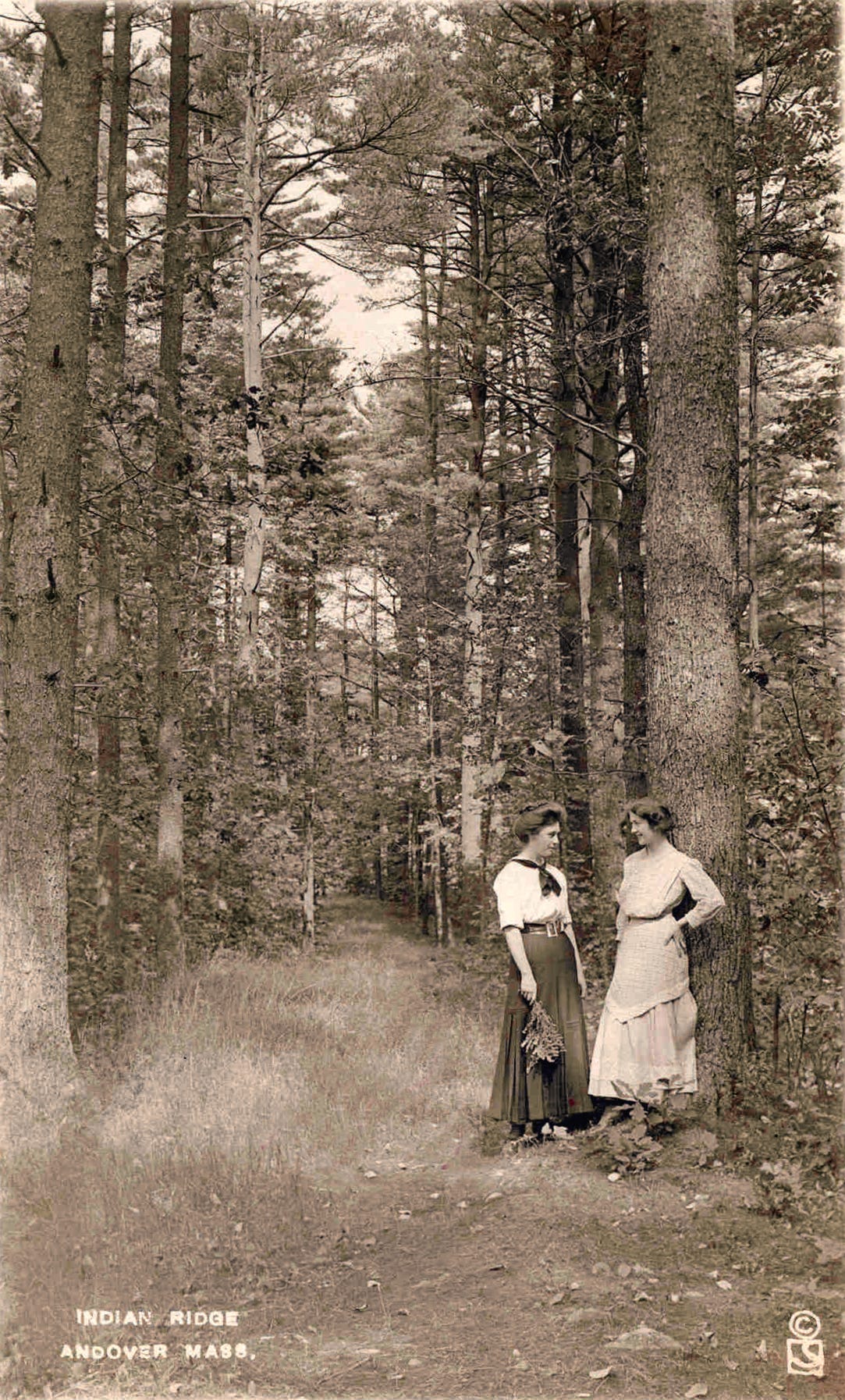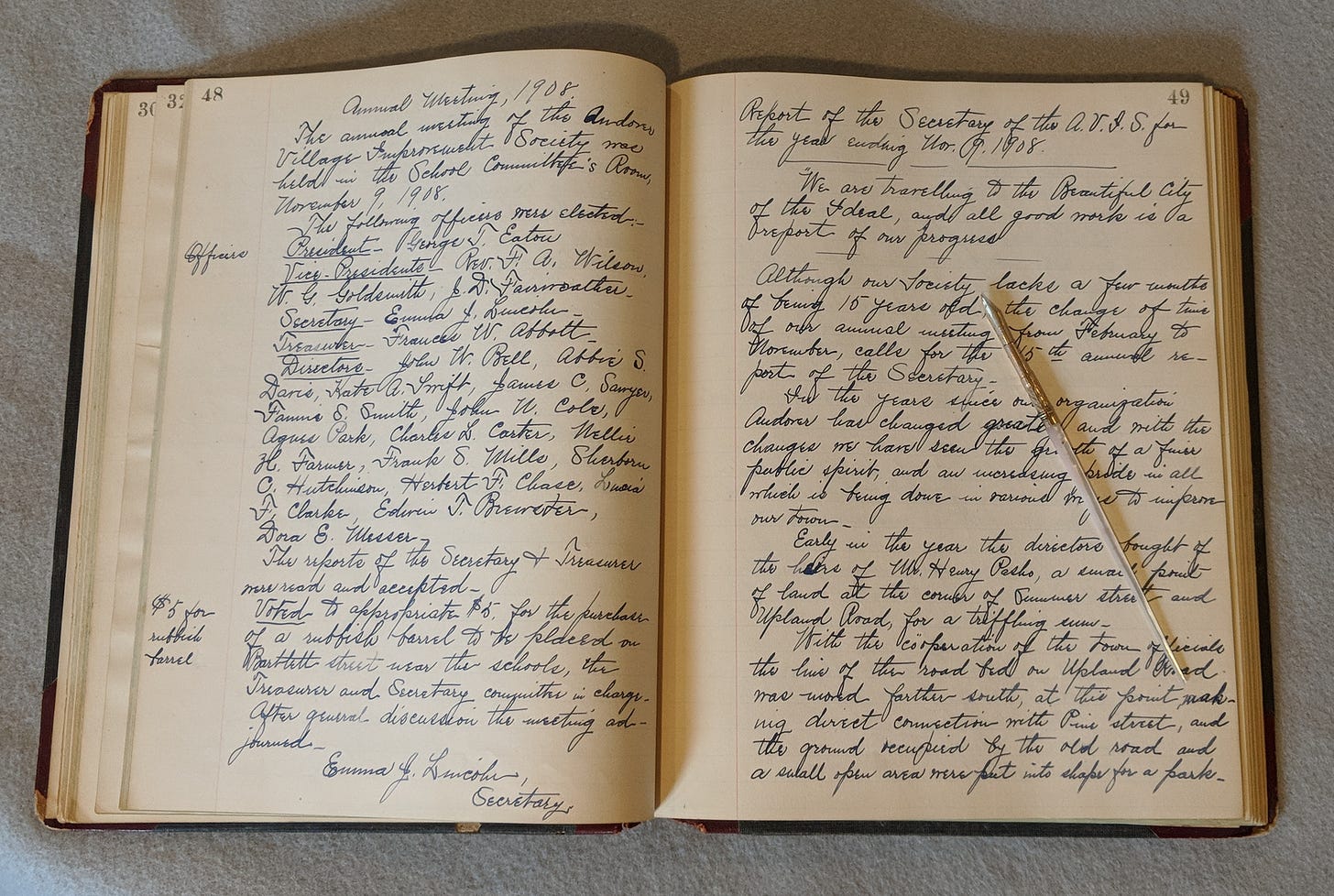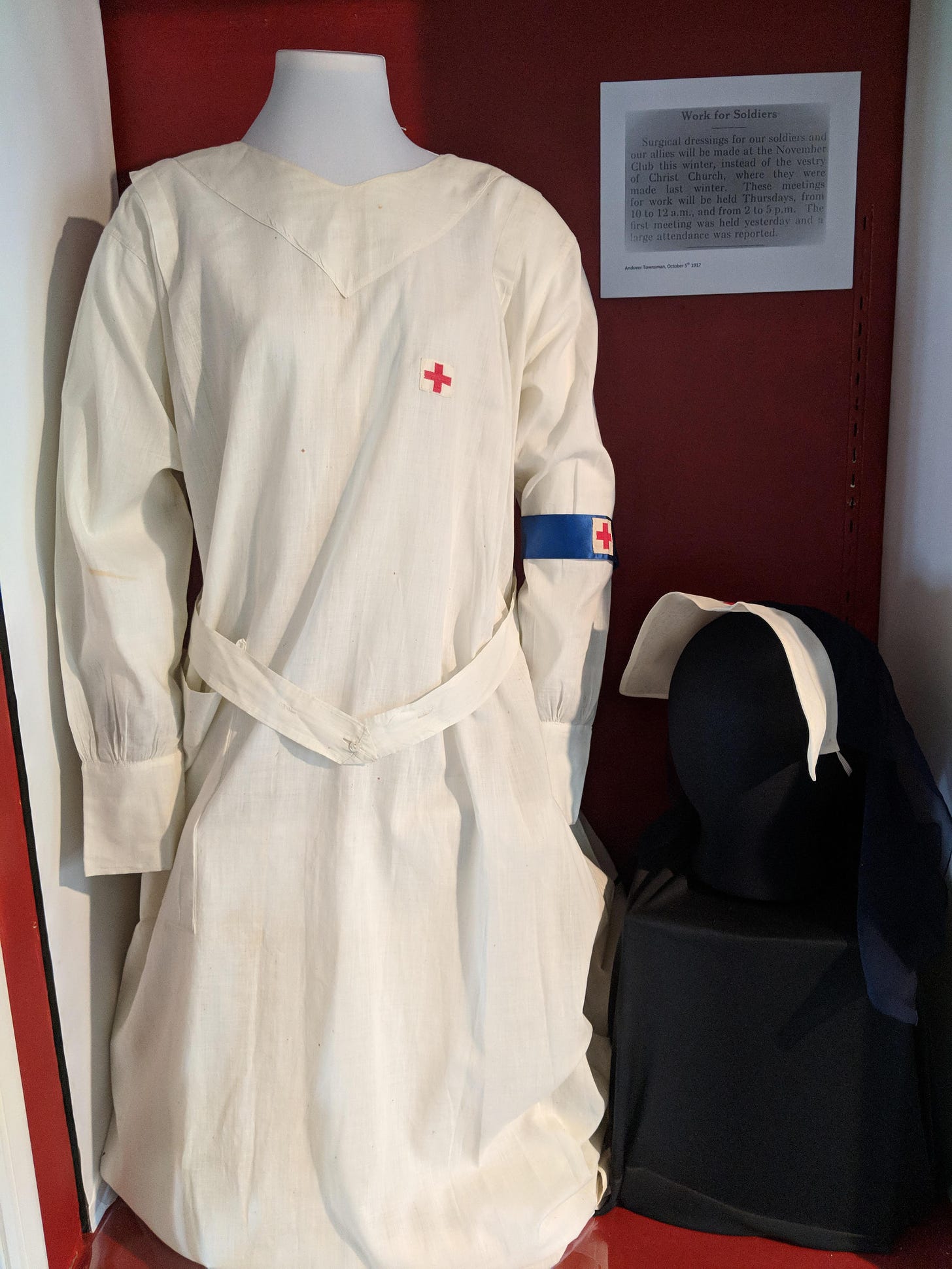"When one quietly passes from our midst..."
As the unmarried daughter of a well-known minister, Emma Lincoln was, as so many women were, a footnote in other people's stories.
Welcome or welcome back to History Buzz! If you’re a subscriber to the Buzz, thank you! If you’re new here, or you haven’t become a subscriber yet, hit that subscribe button to have History Buzz delivered directly to your inbox. If you can, please consider a paid subscription to support the research and writing that make History Buzz possible.
Women have had a role in the conservation movement for centuries. Their work and stories were not shared as widely as men’s stories.
No where has women's self-conscious role as protectors of the environment been better exemplified than during the progressive conservation crusade of the early twentieth century. Although that role has been rendered all but invisible by conservation historians, women transformed the crusade from an elite male enterprise into a widely based movement.1
Andover’s conservation story can be traced back to four formidable women: Emma Lincoln, Susan Blake, Salome Marland, and Alice Buck. Today, I’m sharing the story of Emma Lincoln, which starts with her obituary.
Obituaries can be gold mines of information.
But in Emma Lincoln’s case, the author of her obituary realized how little was known about her life and her interests, in Andover and around the world.
Emma Lincoln was born in 1854 in Yarmouth, Massachusetts. That same year her father, Universalist minister Reverend Varnum Lincoln, finished building the family a house on Summer Street in Andover.
For the first 25 years of her life, Emma moved with the family as her father served in towns around Massachusetts.
By 1870, the Lincoln family settled in Andover.
Emma was active in the Merrimack Valley Universalist Conference, founded in 1885. A short time later, she was elected to the Conference's executive committee.
Andover’s conservation movement
In 1894, Emma Lincoln became deeply involved in local conservation issues, working to raise funds to save Indian Ridge.
In the fall of 1896, owners of a section of Indian Ridge announced plans to sell their share of the land for use as a gravel pit, leading to a loud public outcry against the sale.
Seeking to save the Ridge as public open space, trustees of the Andover Village Improvement Society (AVIS) asked four formidable Andover women to raise funds to purchase Indian Ridge: Emma Lincoln, Susan Blake, Salome Marland, and Alice Buck.
The women raised funds door-to-door, through school campaigns, a community lawn party, and by mail. And in December 1897, the deed was turned over to the new Indian Ridge Association.
Emma was involved with both the Indian Ridge Association and AVIS until the two merged in 1915. From 1894 until 1924, she served as Secretary of AVIS, and then served as their 2nd Vice President from 1924 until her death in 1932. 38 years of dedication!
Much of what we know about Emma Lincoln’s personal life comes from her household account books, which are in the History Center archives.
She joined the Andover Historical Society in 1911, the year it was founded, and renewed for $3 every January thereafter. She attended Historical Society pageants and other events.
Emma Lincoln was a philanthropist who supported local and international causes, from the Andover Historical Society to women's suffrage to international war relief.
She gave to the Anti-Saloon League, Andover Health Association, Public Safety Committee, Children of America Fund, Suffrage League, and later - after women's suffrage was granted - the League of Women Voters.
Emma supported international relief efforts throughout World War I: Bulgarian Relief, YMCA War Work, Liberty Bonds, Red Cross Stamps, Armenian Relief, Halifax Relief, Salvation Army Christmas, American Syrian Relief, and War Savings Stamps.
And, like many of us (maybe you?), Emma liked to travel.
In August 1896, the Andover Townsman announced that Miss Lincoln was away in New Hampshire for a week’s vacation.
In 1917, Emma spent the winter in Florida with her friend Miss Susan Jones. Her account books also reveal that she was ill during this trip and spent time in Charleston, North Carolina, seeing an osteopath and a dentist. She made a similar trip in 1923.
Emma Lincoln died August 1932. The author of her obituary wrote,
“When one passes quietly from our midst, we come to a realization of how great were her interests. Her life was one of open mindedness, eager love of nature, and kind thoughtfulness of others. Her rare good judgment, her strong convictions, coupled with a genial disposition and a quick sense of humor are an inspiration to all who knew her.”
Do you have experience with the conversation movement - in Andover or elsewhere? Leave us a comment. I love to hear from you!
Thanks for reading!
~Elaine
.
Women of the Progressive, Conservation Movement: 1900-1916, Carolyn Merchant University of California, Berkeley, https://nature.berkeley.edu/departments/espm/env-hist/articles/17.pdf











Ms Lincoln deserves recognition. She did a lot for Andover and elsewhere.
I love reading about the early women who helped in shaping today's society without receiving any credit. Emma Lincoln is one of those women, and today, her story has been heard by at least one other person.